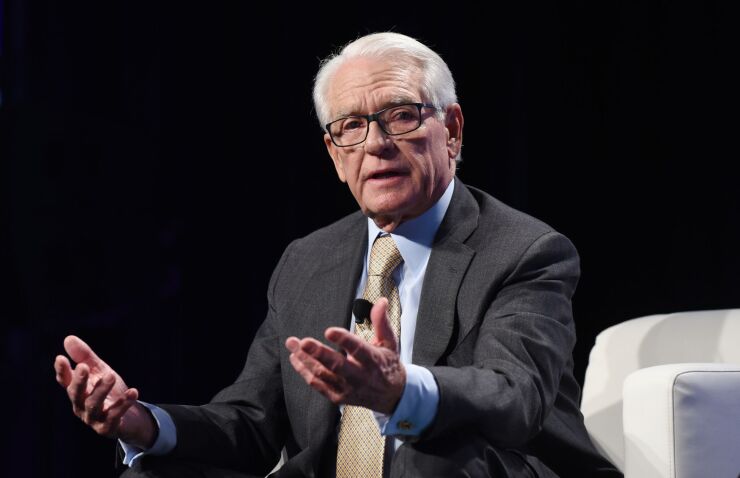WASHINGTON — Technology has radically changed wealth management, but the future of the industry hinges on something else, according to Charles “Chuck” Schwab.
“Fundamentally, advice has to be at the highest levels of ethics,” Schwab told attendees at SIFMA’s annual conference. “We could argue about that I suppose. But it has to be at the same level of your doctor.”
Schwab, 81, said he was worried about fiduciary duty. He asked the audience to think about what constitutes good advice, noting how changes in how Americans save for retirement have upended obligations.
Clashes over the Labor Department's fiduciary rule have carried over into the debate on the SEC's proposed regulation.
“The responsibility we have for people’s savings is awesome. If people are not sophisticated, it is so easy to lead them down an incorrect path,” Schwab said.
His eponymous company plays a large role in the retirement savings business. It has $3.56 trillion in client assets, 11.3 million active brokerage accounts, and serves 7,500 RIAs,

Schwab’s comments come as the SEC considers revisions to its proposed best interest rule, which would update standards of conduct for brokers and advisors. The proposal, also known as Reg BI, puts the SEC in the lead position for reforming standards following
Prior to its nullification by a federal appeals court, the Labor Department regulation changed both how firms operate and client expectations. SIFMA was one of the plaintiffs in that case. Some industry insiders say clients now ask for more transparency around fees and about the obligations that their advisor has to them.
Schwab did not comment directly on either the SEC proposal or Labor Department rule. But he did outline a perspective on regulation.
“I have always thought that our company benefits from strong and thoughtful regulation. It creates confidence,” he said. “Think about this. Someone in New York would send me in San Francisco a $10,000 check to execute a trade. Think about the confidence and trust that has to be there to do that.”






